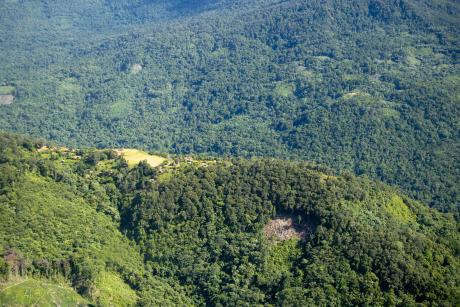
A regular flight to the remote community of Wanakipa brings connection to the outside world and access to vital commodities.
Story by Matt Painter
It’s a normal day of MAF flying. The ten-seat Cessna Caravan touches down on Wanakipa’s hillside airstrip. Passengers alight from the cabin, including a man returning home, being reunited with his family. After the turnaround is completed, passengers board, including a young man heading off to the city to see his brother at high school.
The MAF passenger service impacts people’s lives and connects them with family members, but the passenger list only tells part of the story.
For it’s not just people that are transported, MAF regular flights also bring connection through cargo.
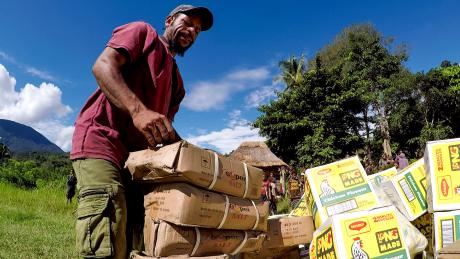
Joe John is one of two local store owners who are receiving cargo consignments from MAF flights today. The store goods include rice, salt, tinned fish, cooking oil, noodles and soap.
Mr John described how MAF flights are the sole means of obtaining stock in this remote setting.
“I normally get cargo loaded and flown in from Tari. MAF helps me to get these things transported,” he says. “There’s no other way, place or other method where I could get freight such as this, but only MAF helps by bringing freight down to Wanakipa. There are no other planes that come to help me, only MAF.”
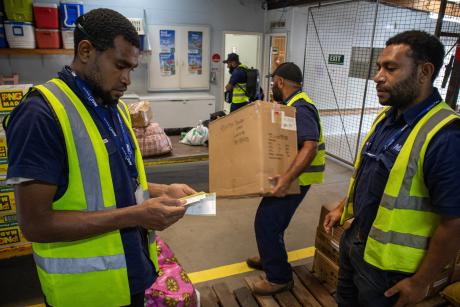
Store owners in many isolated villages of Papua New Guinea rely on MAF to bring their merchandise. Income from sales helps their families to afford school fees, and their stocked shelves help teachers and health workers from other parts of the country to survive in this remote place.
“I get these things flown in to help the families here in Wanakipa, because they don’t have a road where they can go in and out to find this kind of food,” he adds. “The only way where the food will come and they can get it is through this MAF service, so we order it from Tari and it comes down here in this way.”
There are no other planes that come to help me, only MAF.
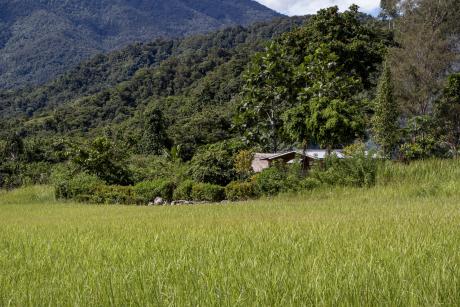
While Mr John’s store goods are stacked by the side of the grass airstrip, a bundle of newspapers is unloaded from the cargo pod of the aircraft and distributed to local people who catch up on the news in Tok Pisin, connecting with the outside world.
But regular MAF flights bring something else that connects people, mobile phone credit.
“Around here, we wait for MAF to come, and then phone credit comes,” Community Health Worker Eric Lomba explains.
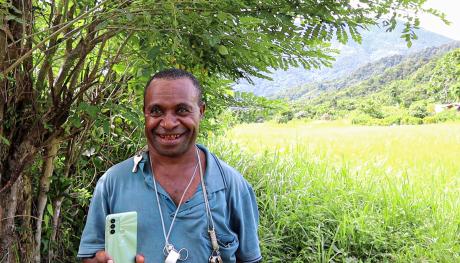
“When there’s no MAF plane, and phone credit doesn’t come, the phone is just sitting there doing nothing. Because this is a bush village and it’s hard to get phone credit.
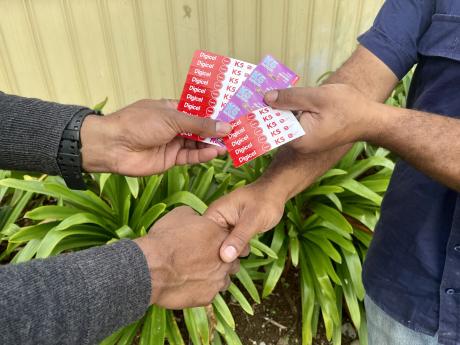
“So, when MAF comes and phone credit comes, then I start calling to help people around here, or call friends and relatives that I want to chat to. Truly, I can have those conversations only through having credit and this phone in my hand. If I don’t have phone credit, then I hold this phone for nothing.”
